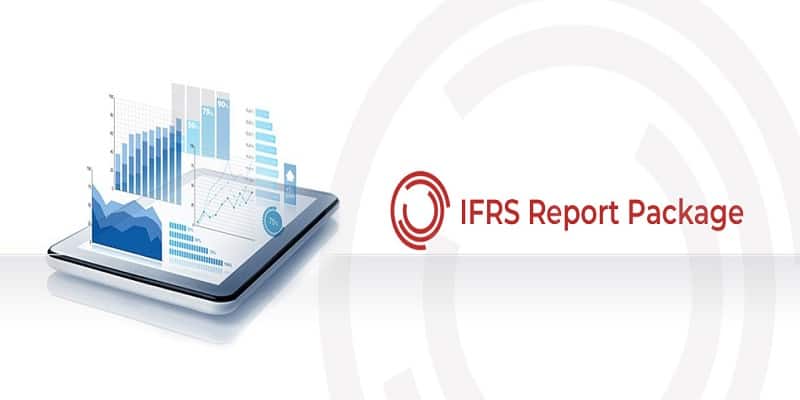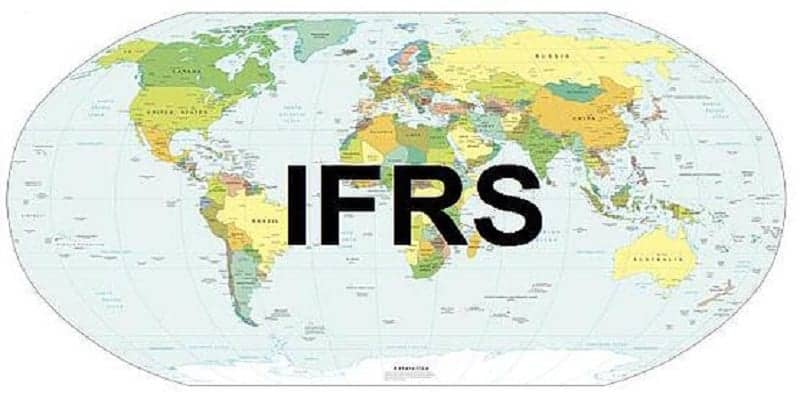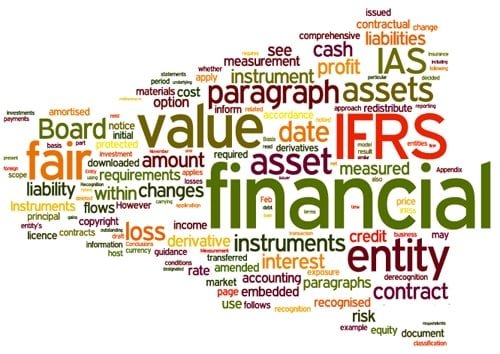Updated at 05/07/2022 - 03:25 pm
The conversion of financial statements from VAS to IFRS (International Financial Reporting Standards – OLDInternational Financial Reporting Standards) help businesses integrate faster into the world economy, thereby accessing foreign capital sources, improving competitiveness, providing more accurate information. on the financial position of the business.

The benefits of converting financial statements under IFRS #
The conversion of financial statements from VAS to bring the main benefits to enterprises as follows:
Increase information transparency #
IFRS makes it easier to raise foreign capital and helps improve accountability by reducing information gaps between inside and outside the company. Thereby, increasing the transparency of information, helping companies access capital in the international market, as well as enhancing the reputation and brand of the business.
Capital cost savings and reporting #

IFRS helps to reduce capital and reporting costs. From increasing the reliability of information, enterprises will increase their ability to mobilize foreign investment capital flows, reduce the cost of issuing securities to raise capital. On the other hand, when applying under IFRS, multinational companies will reduce to only one set of financial statements in a single language, thereby saving costs when making reports.
IFRS helps businesses demonstrate their commitment to the highest standards of financial information and investor protection, giving companies the passport to access almost any capital market in the world.
Increase the competitiveness of the business #
IFRS application will help measure operational activities in the company according to a common standard, strictly applied by high compliance. Financial reporting according to global standards will therefore also provide comprehensive, correct and timely information. Therefore, businesses can compare with competitors to know strengths and weaknesses compared to competitors to find ways to overcome and improve competitive advantages in the market.
Steps to convert financial statements from VAS to IFRS #
Financial reporting standards are considered to be an effective "right hand" to help businesses and investors obtain transparent, consistent, and easily comparable financial statements across countries. Here are some key steps that businesses need to consider in the process of converting financial statements from VAS to IFRS:
- Learn and understand the IFRS standards at the general level and the main content. For commonly used standards or standards for which the VAS party has equivalent standards, it must be carefully studied.
- Understanding VAS standards, thereby identifying differences with IFRS standards, thereby identifying items that will have differences when converting from VAS to IFRS on the financial statements of your business;
- Conduct analysis and evaluation of financial statements prepared and presented in accordance with VAS to identify items and transactions with differences between VAS and IFRS;
- Collect the necessary data and records to measure the difference between VAS and IFRS. In which, the most prominent is fair value in accounting, in IFRS, fair value is used relatively systematically and there are specific instructions in valuation and recognition of elements of financial statements, and VAS still records prices at cost.
- Design the account system, forms and formulas to calculate the differences between VAS and IFRS for each item, arising transaction, etc. to ensure the information retrieval process and generate reports when put into operation. onion;
- Prepare adjusting entries for differences in Financial Statements figures from VAS to IFRS;
- Enter the entries into the VAS financial statements, make adjustments to get the balance according to IFRS; Check the balance and appropriateness of the data after entering the adjusted entries;
- Adjust the notes on the changed report after entering the adjusted entry and make other notes (if any) in accordance with IFRS standards.
- Review the entire Financial Statements to ensure that the information presented is correct and appropriate.
In the long term, to ensure the preparation and presentation of financial statements according to IFRS, enterprises need to: #

- Analyze business operations as well as review, test and re-establish systems, processes as well as business infrastructure to serve as a basis for building and selecting suitable financial models for requirements. of the IFRS;
- IFRS standards are built based on a system of principles, allowing enterprises to choose accounting policies, accounting estimates and financial models required by IFRS in accordance with their production and business activities. business of the enterprise. Therefore, enterprises can re-establish the accounting system that best suits their business characteristics;
- Enterprises need to evaluate the existing information infrastructure system. Applying technology solutions to support the process of data collection, standardization, data processing, as well as connecting all activities from all departments inside the enterprise, or with stakeholders from the outside enterprise. Therefore, enterprises need to implement a software upgrade plan, if necessary, and set up and reflect the differences between VAS and IFRS on the system.
The transition from the system of Vietnamese Accounting Standards to CInternational Financial Reporting Standards IFRS requires the establishment of new processes and visions to change the old accounting and financial management methods. Enterprises converting financial statements from VAS to need to be equipped with the necessary knowledge to process transaction information in order to record and make more detailed notes, according to the stricter requirements of international reporting standards. . Although the transformation takes time and effort, the application of IFRS will bring many benefits when the enterprise implements it successfully.



